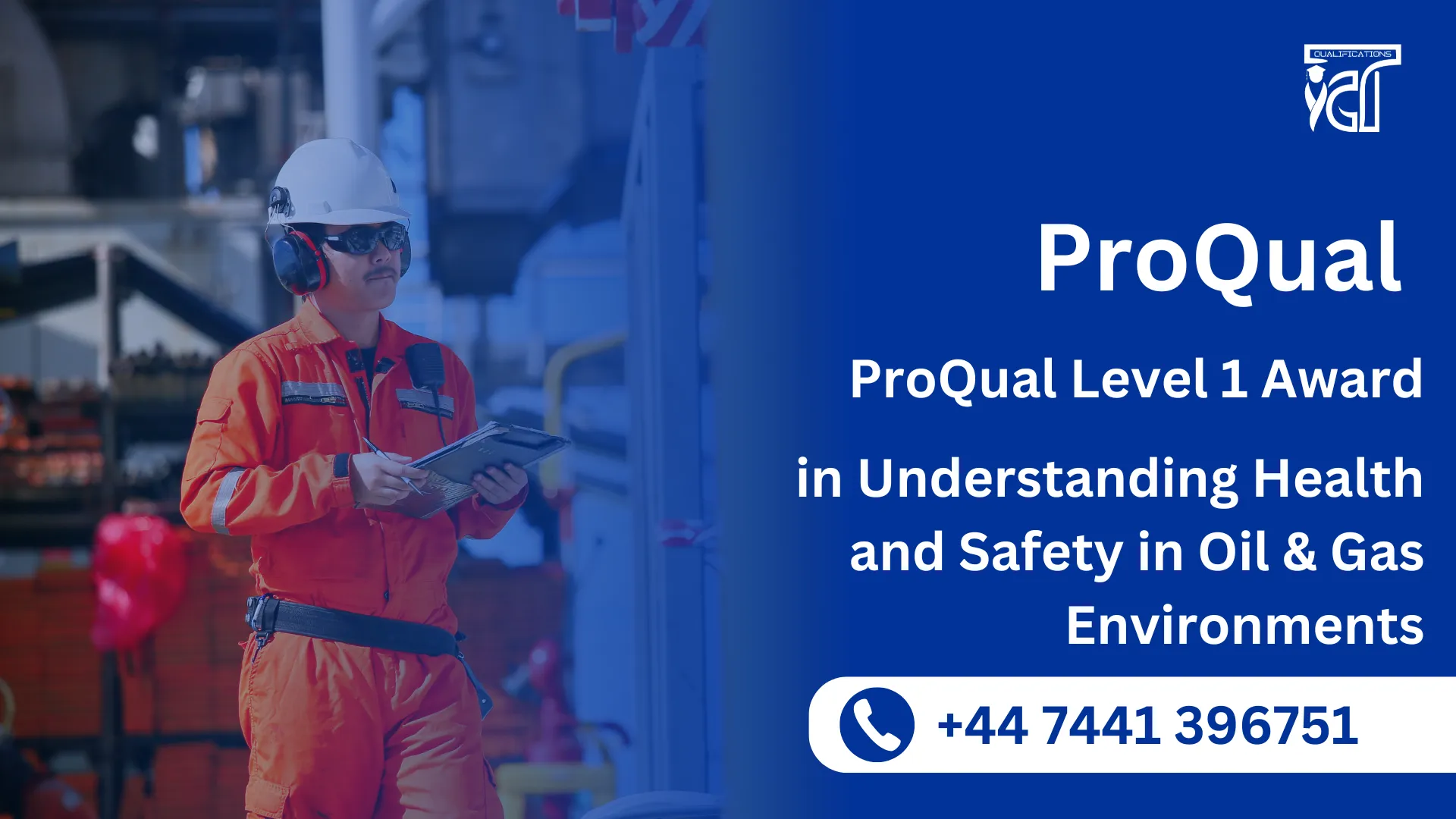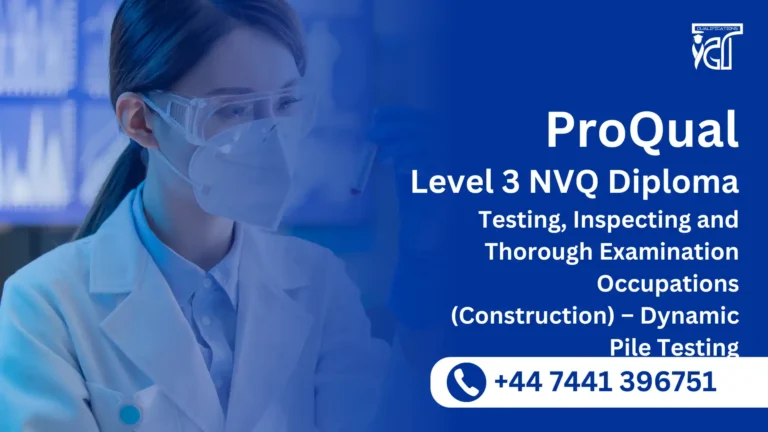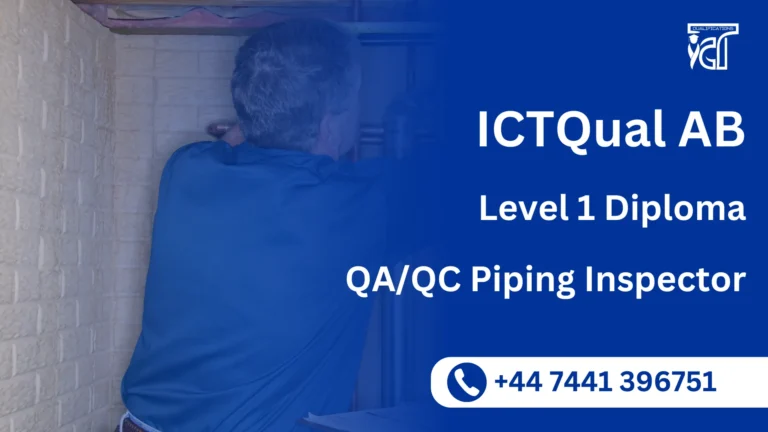The ProQual Level 1 Award in Understanding Health and Safety in Oil & Gas Environments is a valuable course designed to equip participants with essential knowledge of health and safety practices in this high-risk industry. Ideal for both newcomers and seasoned professionals, the course focuses on key safety principles, hazard identification, and risk management specific to oil and gas operations. By enhancing your understanding of workplace safety protocols, this qualification ensures compliance with industry standards and promotes a safer work environment. Boost your career prospects in oil and gas with this foundational training.
The oil and gas industry is one of the most dynamic and challenging sectors, where maintaining health and safety is paramount. The ProQual Level 1 Award in Understanding Health and Safety in Oil & Gas Environments course equips participants with essential knowledge to identify, assess, and manage risks in these demanding workplaces. Designed to raise awareness and promote safe practices, this course is an invaluable foundation for anyone working or aspiring to work in oil and gas settings.
Completing the ProQual Level 1 Award in Understanding Health and Safety in Oil & Gas Environments provides participants with a competitive edge in the industry. It enhances their ability to contribute to safer workplaces, improving both individual and team performance. This certification is a valuable addition to resumes, showcasing a commitment to safety and compliance. Moreover, the course lays the groundwork for further professional development in health and safety, opening doors to more advanced roles in the oil and gas sector.
ProQual Level 1 Award in Understanding Health and Safety in Oil & Gas Environments
To achieve the ProQual Level 1 Award in Understanding Health and Safety in Oil & Gas Environments: Candidates must complete the following single Mandatory unit of 30 Guided Learning Hour.
| Sr# | Unit Title |
|---|---|
| 1 | Introduction to Health and Safety in Oil & Gas Environments |
GLH (Guided Learning Hours) and TQT (Total Qualification Time) are terms commonly used in vocational qualifications to help define the amount of time a learner is expected to spend on their studies.
1. GLH (Guided Learning Hours)
GLH refers to the number of hours a learner spends being directly taught, supervised, or supported during their course. This includes the time spent in activities such as:
- Classroom instruction
- Practical workshops
- One-on-one tutoring or mentoring sessions
- Online learning sessions with tutor support
In other words, GLH represents the time that learners are actively engaged with their instructors or learning activities.
2. TQT (Total Qualification Time)
TQT represents the total amount of time a learner is expected to invest in completing a qualification, including:
- GLH (Guided Learning Hours): Time spent on direct learning, as explained above.
- Self-Directed Learning: This includes time spent on independent study, research, assignment completion, preparation for exams, and any other work the learner does outside of direct teaching hours.
TQT is a broader measure that includes all the time required to achieve the qualification. It helps learners and employers understand the overall commitment required for the qualification.
Key Differences Between GLH and TQT:
- GLH focuses on direct learning with guidance or supervision.
- TQT includes GLH as well as independent study time and other learning-related activities.
Example:
If a qualification has a TQT of 600 hours and a GLH of 250 hours, it means the learner should spend 250 hours in direct learning (classroom, online, or tutor-led sessions) and 350 hours on independent study or research.
ProQual Level 1 Award in Understanding Health and Safety in Oil & Gas Environments
Introduction to Health and Safety in Oil and Gas Environments
- Know the legal requirements associated with own sector and how to comply with them
- Understand organisational information management and know how to report incidences and accidents
- Understand own responsibility for welfare provisions
- Know how to assess and control risks
- Know the importance of a safe system of work (SSOW) and a safe working environment
- Understand own environmental responsibilities and organisational sustainability requirements
- Know fire safety principles and precautions in oil and gas
- Know the importance of emergency procedures in the workplace
- Know how to foster good working relationships, equality and how to offer support to colleagues with mental health issues.
Benefits of the ProQual Level 1 Award in Understanding Health and Safety in Oil & Gas Environments
The ProQual Level 1 Award in Understanding Health and Safety in Oil & Gas Environments provides essential safety knowledge for individuals working in or entering the oil and gas sector. This Ofqual-regulated, assignment-based qualification offers numerous benefits, including:
- Gain essential knowledge of health and safety protocols specific to oil and gas environments.
- Enhance workplace safety awareness and minimize risks in high-hazard industries.
- Learn industry-recognized best practices to ensure compliance with safety regulations.
- Develop foundational skills to identify and address potential workplace hazards effectively.
- Build confidence in implementing safety measures to protect yourself and others on-site.
- Improve employability with a certification highly regarded in the oil and gas sector.
- Understand the importance of proactive safety management in challenging environments.
- Strengthen your ability to contribute to a safer, more efficient work environment.
- Achieve a globally recognized qualification to advance your career in oil and gas.
- Benefit from a structured curriculum designed to meet industry-specific health and safety needs.
The ProQual Level 1 Award in Understanding Health and Safety in Oil & Gas Environments is designed for individuals who want to develop essential safety knowledge for working in onshore and offshore oil and gas operations. This qualification is best suited for:
- Ideal for individuals new to the oil and gas industry seeking foundational knowledge in health and safety.
- Perfect for workers looking to improve workplace safety practices and reduce risks in oil and gas environments.
- Designed for professionals aiming to enhance their understanding of industry-specific safety regulations and protocols.
- Beneficial for employees who want to contribute to a safer and more efficient work environment.
- Suitable for anyone interested in building a strong safety culture within their organization.
- Great for individuals pursuing career advancement opportunities in the oil and gas sector.
- Tailored for team leaders and supervisors responsible for ensuring compliance with health and safety standards.
- Provides essential training for those preparing to work in challenging and hazardous conditions.
- Useful for employers seeking to upskill their workforce and improve overall safety performance.
- Helps learners gain industry-recognized certification to enhance professional credentials.
The “ProQual Level 1 Award in Understanding Health and Safety in Oil & Gas Environments” is designed to equip learners with essential knowledge and awareness of health and safety practices specific to the oil and gas industry. This introductory course lays the groundwork for understanding the unique risks and safety protocols in this high-risk sector, making it ideal for newcomers or those seeking a refresher.
- Completing this course builds a strong foundation for recognizing risks and following safety protocols unique to oil and gas settings.
- After Level 1, learners can advance to Level 2 and Level 3 qualifications that cover more detailed safety procedures, emergency responses, and regulatory compliance.
- These higher-level courses prepare individuals for supervisory or technical roles by enhancing risk management and safety leadership skills.
- The qualification supports progression toward widely recognized certifications like Oil and Gas Safety, broadening career opportunities.
- Employers value this training as it reflects a commitment to safety and operational awareness, improving chances for roles such as safety officer, site supervisor, or operations technician.
- Ultimately, the course opens a clear career path in health, safety, and environmental roles within the oil and gas sector, whether offshore, onshore, or in support functions.
- It boosts confidence and competence in working safely in oil and gas environments while laying the groundwork for future professional growth and specialization.
Entry Requirements
Register Now
Qualification Process
Qualification Process for the ProQual Level 1 Award in Understanding Health and Safety in Oil & Gas Environments
- Self-Assessment:
Begin by evaluating your eligibility to ensure you meet the qualification requirements, including work experience, knowledge, and language proficiency. - Registration:
Complete your registration by submitting the required documents, including a scanned copy of a valid ID, and paying the registration fee. - Induction:
An assessor will conduct an induction to confirm your eligibility for the course and explain the evidence requirements. If you do not meet the criteria, your registration will be canceled, and the fee will be refunded. - Assignmnets & Evidence Submission:
Provide all assignmnets and the necessary evidence based on the assessment criteria outlined in the course. If you are unsure of the required evidence, consult with the assessor for guidance on the type and nature of evidence needed. - Feedback and Revision:
The assessor will review your submitted evidence and provide feedback. Evidence that meets the criteria will be marked as “Criteria Met,” while any gaps will be identified. You will be asked to revise and resubmit if needed. - Competence Evidence:
Submit final evidence demonstrating that all learning outcomes have been met. This evidence will be marked as “Criteria Met” by the assessor once it is satisfactory. - Internal Quality Assurance (IQA):
The Internal Quality Assurance Verifier (IQA) will review your evidence to ensure consistency, quality, and compliance with standards. - External Verification:
The IQA will submit your portfolio to ProQual’s External Quality Assurance Verifiers (EQA) for final confirmation. The EQA may contact you directly to verify the authenticity of your evidence. - Certification:
Upon successful completion of all checks, ProQual will issue your official certificate, confirming that you have attained the ProQual Level 1 Award in Understanding Health and Safety in Oil & Gas Environments.
FAQs for ProQual Level 1 Award in Understanding Health and Safety in Oil & Gas Environments







